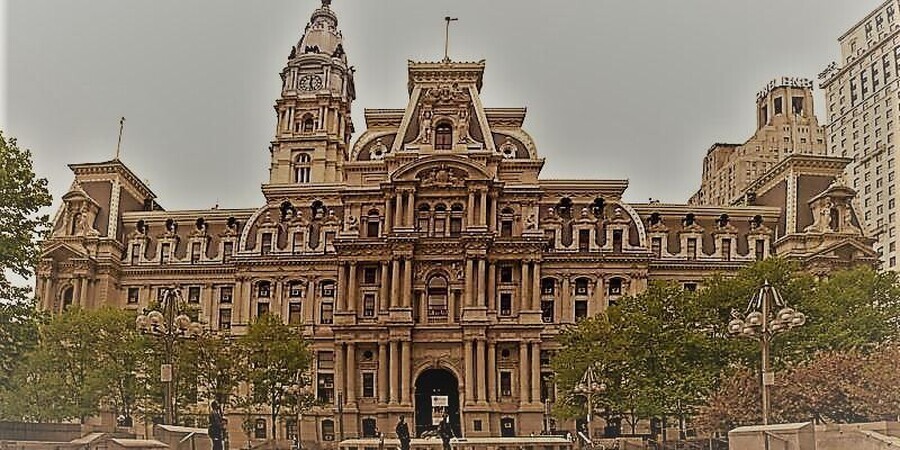Philadelphia, PA - Philadelphia, the birthplace of American democracy, has a long and complex history, with its mayors playing a pivotal role in shaping the city's trajectory. Each leader has navigated unique challenges and opportunities, leaving their own distinct mark on the city's landscape.
Philadelphia's Mayoral History: A Deeper Dive into the Last 10 Leaders
Here's a closer look at the last 10 mayors who have guided Philadelphia:
Cherelle Parker (2024-present): A trailblazer in Philadelphia politics, Parker shattered the glass ceiling by becoming the first woman elected to the city's highest office. Her victory signifies a historic shift in the city's leadership. With a background in both City Council and the Pennsylvania House of Representatives, she brings a wealth of legislative experience to the role. Parker's agenda is expected to focus on addressing the city's pressing issues, including gun violence, poverty, and economic inequality.
Jim Kenney (2016-2023): Kenney's two terms were marked by a focus on social and economic justice. He championed progressive policies such as the implementation of a soda tax to fund early childhood education and community schools. Kenney also prioritized criminal justice reform, implementing programs aimed at reducing incarceration rates and providing opportunities for re-entry. His administration faced the unprecedented challenge of navigating the COVID-19 pandemic, implementing public health measures and providing economic relief to residents and businesses.
Michael Nutter (2008-2015): A staunch advocate for ethical government, Nutter entered office with a commitment to transparency and accountability. He implemented strict ethics rules and worked to restore public trust in city government. Nutter also made significant strides in reducing crime rates through innovative policing strategies and community engagement initiatives. His focus on economic development resulted in the attraction of new businesses and investment in the city.
John F. Street (2000-2007): Street's tenure was characterized by a dedication to revitalizing Philadelphia's neighborhoods. He invested in affordable housing initiatives, improved city services, and promoted community development. Street also played a key role in securing Philadelphia as the host city for the 2000 Republican National Convention, showcasing the city on a national stage.
Ed Rendell (1992-1999): Often credited with rescuing Philadelphia from the brink of financial ruin, Rendell inherited a city grappling with a severe fiscal crisis. Through fiscal discipline and innovative financial management, he restored the city's credit rating and laid the foundation for future economic growth. Rendell also prioritized public safety, implementing strategies to reduce crime and improve the quality of life for residents.
W. Wilson Goode (1984-1991): Goode made history as Philadelphia's first African American mayor, marking a significant milestone in the city's journey towards inclusivity. His administration focused on economic development and job creation, particularly in underserved communities. However, his legacy is also intertwined with the tragic MOVE bombing in 1985, a controversial event that continues to generate debate and reflection.
William J. Green, III (1980-1983): Green's tenure was marked by a focus on infrastructure improvements and economic revitalization. He invested in the city's transportation network, upgraded public facilities, and worked to attract new businesses to Philadelphia. Green also played a pivotal role in bringing the 1980 Democratic National Convention to the city, further raising Philadelphia's national profile.
Frank Rizzo (1972-1979): A polarizing figure in Philadelphia politics, Rizzo's legacy is complex and multifaceted. His tough-on-crime approach resulted in a decrease in crime rates but also drew criticism for its impact on civil liberties and police-community relations. Rizzo's strong personality and populist appeal resonated with many residents, but his tenure was also marked by social unrest and racial tensions.
James H.J. Tate (1962-1971): Tate oversaw a period of significant urban renewal and expansion in Philadelphia. His administration implemented ambitious development projects, transforming the city's skyline and infrastructure. Tate also prioritized social progress, working to improve race relations and expand opportunities for minorities in housing, education, and employment.
Richardson Dilworth (1956-1961): A reformer at heart, Dilworth ushered in an era of modernization and good government in Philadelphia. He tackled corruption, streamlined city services, and revitalized the downtown area. Dilworth's legacy includes the creation of Penn Center, a major urban renewal project that transformed the city's center and set the stage for future development.
These ten mayors, each with their own distinct leadership styles and priorities, have contributed to the ongoing evolution of Philadelphia. Their decisions and actions have shaped the city's physical landscape, social fabric, and economic well-being, leaving a lasting impact on the lives of its residents.


